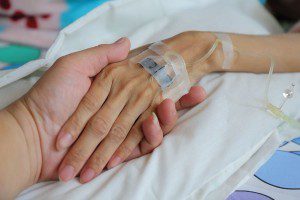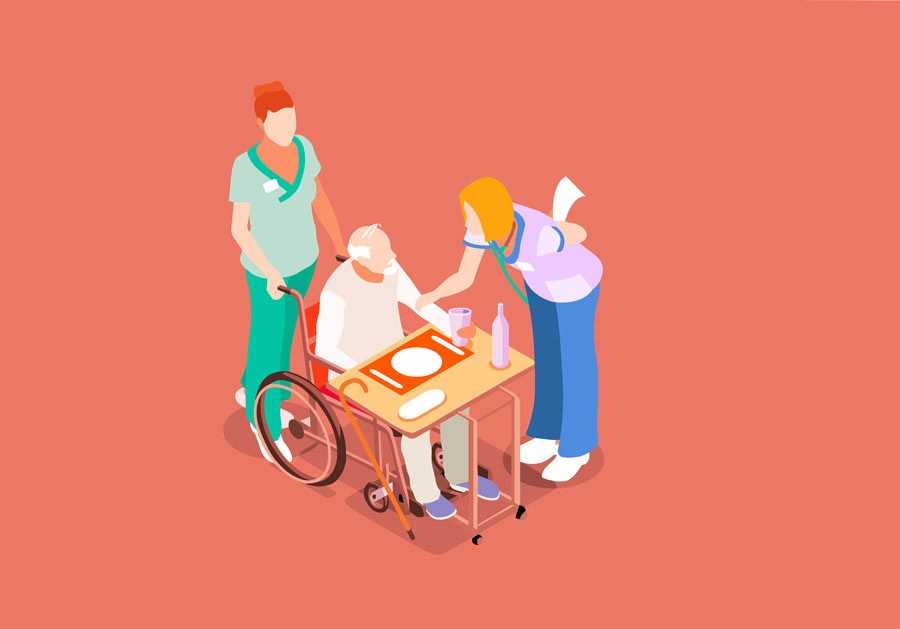Prof. Pierre Mallia talks about an end-of-life project that seeks to overcome misconceptions about unnecessary treatments and pain while dying.
People need the most attention when they are close to death. But end-of-life care is proving to be problematic in many countries because of suggested links to more patients requesting euthanasia. The situation is ironic, considering that a significant number of major religions and societal institutions have always promoted optimal end of life care for the elderly and terminally ill, with appropriate pain relief.
Care can sometimes hasten death. Treatment sometimes needs to be omitted to prevent unnecessary suffering when death is inevitable. This has been the source of endless debate. For example, should a bedridden 95-year-old be given a pacemaker? The expectations of the outcome need to be weighed against what the procedure can actually achieve. Life may be extended by a few months at the cost of inflicting further agony. If upon consultation, both doctor and patient agree that going through with the procedure is excessive, the ethical implications of futile treatments need consideration.
It is difficult to remove a patient’s life support, even if they are close to death’s door. Though, on the other hand, there may be little point in discussing the issue with relatives and patients once this stage has arrived. Certainly, a life at its end is difficult for everyone but our concern has always been morally centred on the patient. Every decision is based on whether it really benefits them. Is that drip really providing hydration or are we keeping it there simply to ‘be seen’ that we are doing ‘something’? Is the procedure really in the patient’s best interest, or is it simply there to calm the conscience of relatives and care providers?
Studies show that legality and morality are the two biggest issues for healthcare professionals. Both can be appropriately addressed. Legal issues are unclear since there is no legal framework for end-of-life. Regarding morality, there is no doubt what the Catholic Church has to say on end-of-life: carers do not need to provide futile treatment or extraordinary procedures. Whether a treatment is extraordinary or not is determined by the patient. By the principle of double effect, pain relief can be provided even if this may hasten death (which it probably does not). The problem therefore seems to be lack of moral instruction and fear of law and litigation.
Education is key
To overcome these issues, the Bioethics Research Programme (Faculty of Medicine & Surgery, University of Malta [UM]) applied for Erasmus+ funds to study this problem. At the tune of just under half a million euro, the EndCare project is the largest Erasmus+ project led by the UoM. The project aims to create documents as a guide towards the appropriate education needed and propose them as an international curriculum.
“
A problem is an inability for hospitals to shift treatment from cure to care.”
Education about end-of-life needs streamlining. The aim is not to re-invent the wheel on the moral positions of end-of-life—the project does not discuss euthanasia. Rather, it is to study why people are ignorant or afraid of receiving or imparting proper end-of-life care. Do all people dying in hospital really have to die with a drip attached to their arms? If they chose to die at home, they legally and morally might have been unable to receive that drip. The distinction seems unfair.
Another problem is an inability for hospitals to shift treatment from cure to care. Do we really have to re-insert that drip when a patient is dying, knowing that carers need to insert another needle through collapsed veins that would require jabbing the patient’s arms dozens of times? Is that comfort? An inability for medical practitioners to give a diagnosis of dying means that management is unable to change treatment from cure to care. End-of-life care does not involve stopping all treatment, rather it involves reviewing what is necessary for the comfort of the person. But without a proper diagnosis there is a resistance to death. When an illness is diagnosed as terminal it means that it has reached a stage where it is morally better to prioritise the patient’s comfort and care rather than to seek further treatment.
People first
End-of-life is not only a medical issue. It is a psychosocial one. The social issues involved, including cultural and religious, must be studied and carefully considered. The project is working with representatives from Christian, Catholic, Islamic, and humanist point of views. Although some Christian denominations do support euthanasia, most do not. Of what it does recommend, much is not practised—an issue which must be understood. All major religions agree that pain relief can be given even if it hastens death. Extraordinary measures must be discussed with patients and relatives. The same holds true for futile treatment, which unfortunately favours continued action over comfort. Many medical professionals do continue using drips though it is uncertain whether it is helpful or incredibly uncomfortable.
The curriculum is key to understanding why certain misconceptions continue to be upheld and to introduce ways to change them. This project outcome is being developed in an innovative way. The summer school will involve healthcare professionals, patients, priests and others to input their ideas into the curriculum.
“Euthanasia is still confused with end-of-life care.”
 The curriculum will not address moral teachings as these are widely known and one can cover them quickly. What needs addressing is the ethical, legal, and social concerns of the groups. This will help improve end-of-life care. The groups’ feedback is key. Due to the cultural sensitivity of the issue, how end-of-life care is implicated in each country and legislature needs to be tackled. In the end, the project team hopes to achieve a working document that will be used in order to help alleviate the fear of medical practitioners, carers, and patients on pain or unnecessary treatments that may only prolong the agony.
The curriculum will not address moral teachings as these are widely known and one can cover them quickly. What needs addressing is the ethical, legal, and social concerns of the groups. This will help improve end-of-life care. The groups’ feedback is key. Due to the cultural sensitivity of the issue, how end-of-life care is implicated in each country and legislature needs to be tackled. In the end, the project team hopes to achieve a working document that will be used in order to help alleviate the fear of medical practitioners, carers, and patients on pain or unnecessary treatments that may only prolong the agony.
Euthanasia is still confused with end-of-life care. In Malta, recent vox pops performed by local media addressed a request by a person with motor neuron disease who wishes to have access to euthanasia. Many in favour of euthanasia cited pain and undue treatment as their justification—aims that could already be met by end-of-life care. This is a clear sign that wrong perceptions are pervasive. The proper implementation of end-of-life care would reduce the fear of pain or disproportionate treatments that might make euthanasia moot in many cases.





Comments are closed for this article!